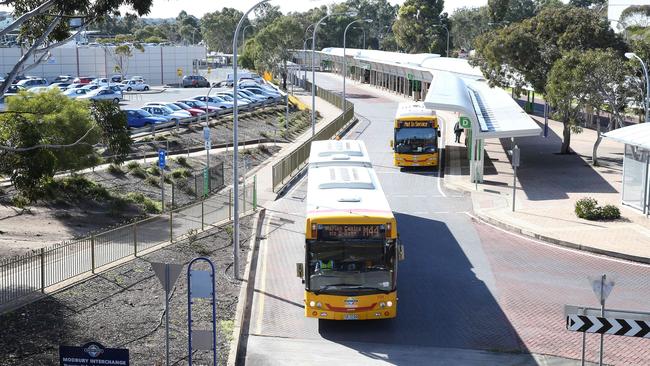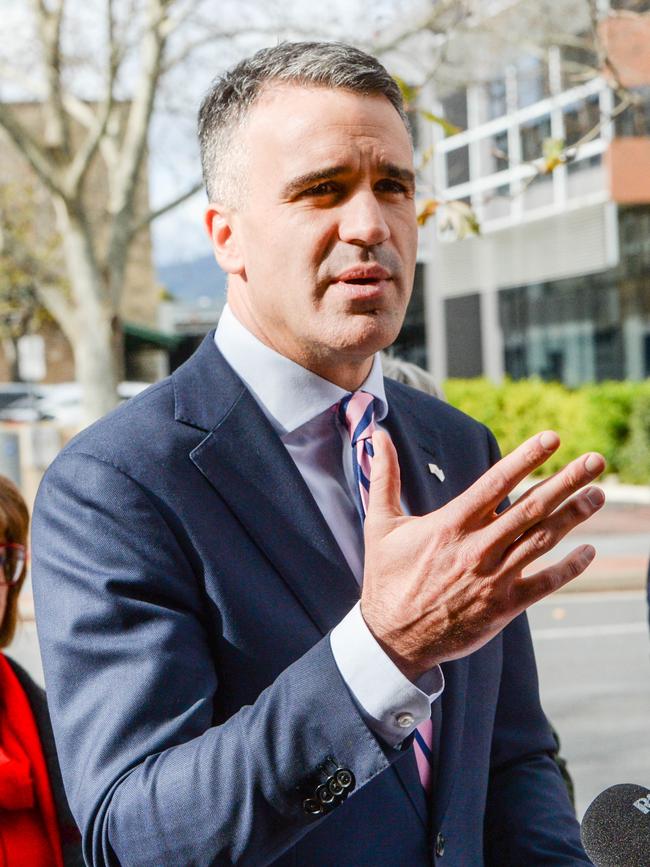National Retailers Association raises ‘grave concerns’ with laws to block paid parking at major shopping centres
Laws that would block paid parking at shopping centres like Tea Tree Plaza would do more harm than good, a peak retailers body says
North & North East
Don't miss out on the headlines from North & North East. Followed categories will be added to My News.
Laws that would block paid parking at major shopping centres including Tea Tree Plaza would drive away customers and hurt businesses, a key retailers body has warned.
The National Retail Association, which represents more than 10,000 shops in South Australia, has “grave concerns” over the push to scrap paid parking, which it says is “not the positive outcome that the (state) government may believe it to be”.
“(Retailers’) livelihoods very much depend on availability of nearby carparking spaces and turnover of vehicular traffic in these carparks,” association chief executive Dominique Lamb wrote in a letter to upper house crossbenchers.
Ms Lamb said paid parking schemes ensured spaces were not taken up by commuters or workers from nearby areas.

“If this occurs, it makes it more difficult for customers to shop with our members, and results in a proportion of those potential customers choosing to shop elsewhere either at a different location or online,” she said.
She said the association would be “very concerned” if retail staff were forced to pay full rates for parking an entire workday, but it was reasonable that management collect a “token fee from employees” for parking.
A spokeswoman for the Scentre Group, the owner of Westfield, said if the company’s plans for paid parking were introduced, the “vast majority” of people who park at Tea Tree Plaza would still park for free. There would be no charge for the first three hours.
“For retail staff, the daily parking fee would be an amount similar to the cost of public transport,” she said.
“It’s widely understood that on any given day, our customers are competing with commuters and workers at nearby facilities that charge for, or do not provide, sufficient parking.
“The proposed legislation – which singles out our industry and business – will not fix the parking problem.”


Premier Peter Malinauskas has already faced significant backlash over the legislation, which would ban large centres from introducing paid parking unless they received local council approval.
Days before he announced the legislation would be introduced to parliament, it was revealed that healthcare workers would be required to resume paying for parking at hospitals, prompting claims of hypocrisy.
Urban Development Minister Nick Champion said the bill delivered on an election commitment and he would be happy to meet with the retail association.
“This bill will require community consent for big shopping centres to charge for parking,” he said.
“It will also allow for managed parking to find people who overstayed in the carpark, should council and local communities approve that to occur.
“We are currently undergoing a nine-week consultation period before the bill is debated later this year, with many key stakeholders already consulted.”
Opposition Leader David Speirs said: “It’s crystal clear that Peter Malinauskas’ ego won’t allow him to realise his pet paid parking project is a shocking idea that will hurt business, even though everyone is telling him so.”





